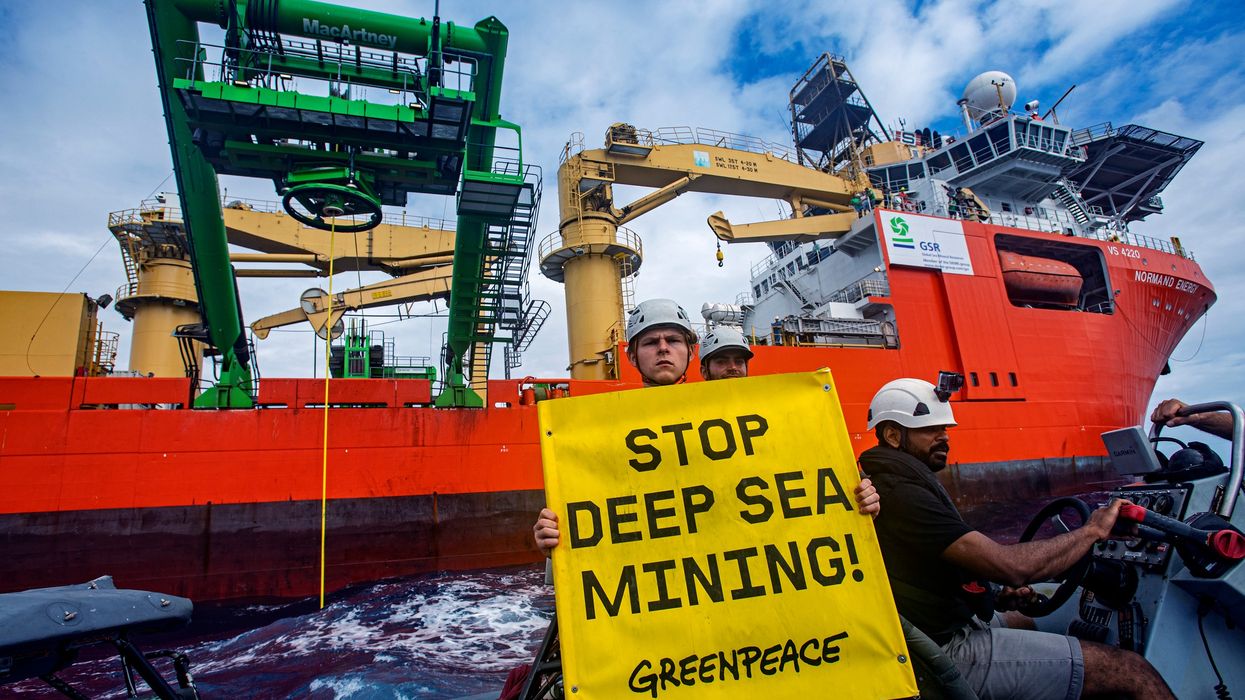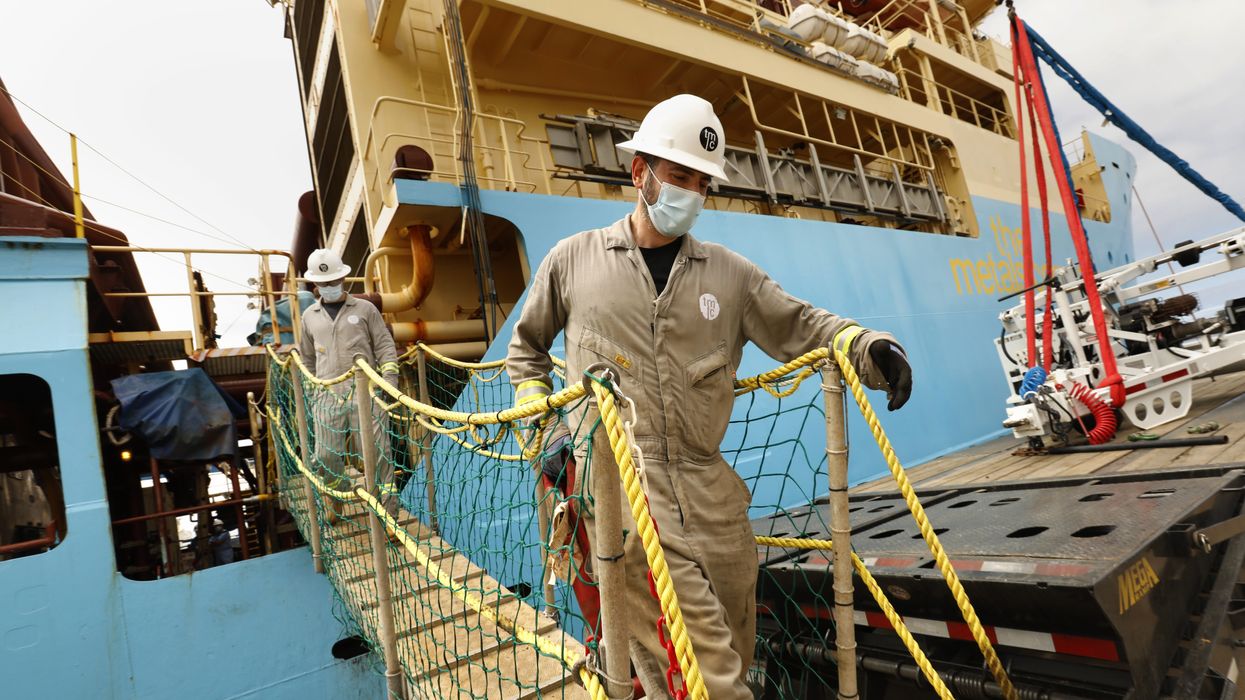In 2021, a subsidiary of The Metals Company joined Nauru's then-president, Lionel Aingimea, in
triggering a "two-year rule" obliging the ISA to adopt and finalize deep sea mining rules and regulations by July 2023.
The company "
forced governments' hands, using an obscure and controversial legal loophole to set an ultimatum for governments," said Greenpeace last week as the delegates gathered in Kingston for the 28th session of ISA.
"The future of half the surface of the planet has to be decided in the best interests of humanity—not the timeframe imposed by a company running out of cash."
Several members of the authority say Michael Lodge, a British lawyer who serves as ISA's secretary general, is actively working to help The Metals Company achieve its
goal of extracting 1.3 million tons of rocks containing cobalt, nickel, copper, and manganese—ingredients for electric vehicle batteries—starting in 2024. The company ultimately wants to collect 12 million tons per year and generate roughly $30 billion.
When the delegates met virtually ahead of the 28th Session to discuss how they would proceed if they receive the company's application this year, some suggested revising the ISA's permitting process to delay the start of mining, as several countries advocate for a "precautionary pause" to better evaluate the effect of deep sea mining on marine life.
A study by British and American researchers published last month
found that "deep seabed mining operations, if permitted, could present significant risks to ocean ecosystems" and that "disturbance on any scale is likely to be long lasting and irreversible."
"There can be no exploitation of the deep seabed without agreeing on a set of rules and regulations that ensure high environmental standards and a sound scientific knowledge," Hugo Verbist, the Belgian representative on the ISA's governing council,
said in Kingston last week.
In his prepared remarks at the earlier meeting, Lodge
told the representatives that the "decision-making procedure is carefully designed to balance all interests represented in the council and it would be dangerous to disturb this balance," suggesting they should not make any changes that would delay The Metals Company's project.
"We should let the system work as it is intended to do," Lodge said.
Although Lodge's position as secretary general requires him to remain neutral as delegates on ISA's governing council weigh decisions about deep sea regulations, one Greenpeace senior oceans policy adviser
said Lodge is showing clear support for "the two-year ultimatum" invoked by The Metals Company, which "puts the interests of the few over the many and would make it impossible for governments to fulfill their key obligation to protect the oceans."
"Many governments have voiced unease at pressure to rush vital political negotiations over equity and ocean health," said Sebastian Losada of Greenpeace. "The future of half the surface of the planet has to be decided in the best interests of humanity—not the timeframe imposed by a company running out of cash."
Lodge's comments were also criticized by delegates from Costa Rica and Germany, both of which have supported a "precautionary pause" on mining.
"It is not the task of the secretariat to interfere in the decision- making of the other organs and subsidiary organs of the International Seabed Authority," Franziska Brantner, Germany's minister for economic affairs and climate action,
wrote in a letter to Lodge last week. "Notwithstanding the above, you used your introductory statement to the intersessional dialogue on 8 March 2023 to present your preferred interpretation of the agreements as the supposed legal framework for delegations' decision-making... The federal government is seriously concerned about this approach."
Lodge dismissed Brantner's allegations,
calling them "bold and unsubstantiated" and telling The New York Times that he places "high importance on the preservation and protection of the marine environment" and wants "to ensure that decision-making processes around economic activity in the deep seabed is based on best available scientific knowledge."
The secretary general has dismissed the work of ocean conservation groups in the recent past,
telling the Times in 2021 that advocates use images of "turtles with straws up their noses and dolphins" to "get public sympathy."
"They see an opportunity to exert power over governments and potentially shut down a new ocean activity before it begins," Lodge added.
Greenpeace called on the governing council to "draw a line and ensure that the deep sea is protected from mining."
"They can't allow this reckless industry to go ahead," Losada said.



